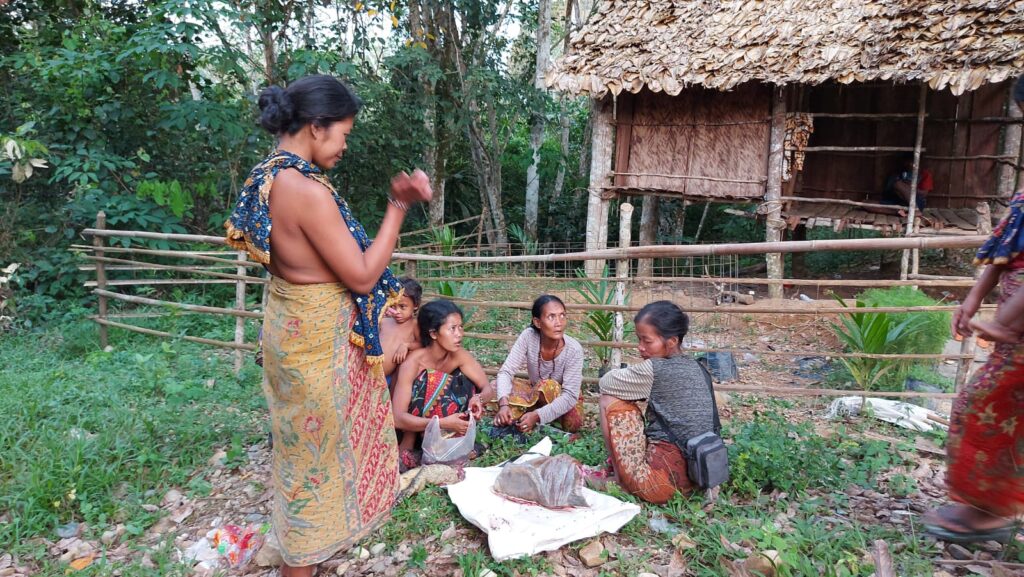The Jungle People basically adheres to matrilineal lineage which means a kinship system from the mother's lineage, as well as about customary inheritance laws. With this kinship system, it creates patterns of rules and division of roles between men and women in the Orang Rimba. The division of roles between men and women is emphasized in Seloko or traditional proverbs and is mentioned during the wedding ritual, the proverb is as follows:
“The food is cooked, the work of making mats and pillows is done by women. Making fields, fishing, making ends meet, carrying heavy work, bringing life and death to men’s jobs.”
From the adage above, it is emphasized that there is a difference in the role of women's work in domestic affairs and men's work is to fulfill the needs of life. However, along with the development of the era, the need to fulfill life is getting higher so that women also do work in fulfilling the needs of life. For example, in the rombong (the name for the group in Orang Rimba) Minan, Ngilo, Ganta, Yudi and Abas, women in the group are also burdened with activities to fulfill needs such as looking for palm fruit bunches, looking for betel nuts, and looking for scrap which is then sold for the needs of life.
This division of roles also has an impact on the limitation of space for women. The limitation of space for movement is expressed in the following chorus.
"A piece of piado bulih leaves huma, a step of piado bulih leaves tango." (cannot leave the field and cannot step over the stairs)
The above verse contains about women not being allowed to go far from their residential environment other than women playing a role in guarding the fields/huma. In this rule is also a form of protection for women and girls. This can be associated with their environment because they used to live in the forest so that they were prone to dangerous things, such as wild animals and so on. Therefore, women and girls if they go out of their environment will be accompanied by their families.
Customary rules and access to self-development for women are not a big deal when the community understands the intent and purpose of self-development for women, especially self-development that is positive and useful for the community. Regarding access, Orang Rimba women in utilization of natural resources not too problematic, but in developing themselves in the outside world, women are limited in access, for example regarding education.
"Women can only get an education when they are children, women who have reached puberty or are no longer allowed to go to school," said Anggun, a companion for the KKI Warsi Orang Rimba.
However, in some groups, some families have allowed their daughters to attend school, although only a few have allowed it. This has more or less shown the awareness of the Orang Rimba community about the importance of education. KKI Warsi through the Estungkara program has been assisting the Orang Rimba indigenous community since 2022. The intensive assistance provided, in addition to supporting access to basic services, also encourages the active participation of women in discussion spaces. This has more or less opened the views of the Orang Rimba community about the importance of access to education for the younger generation.


